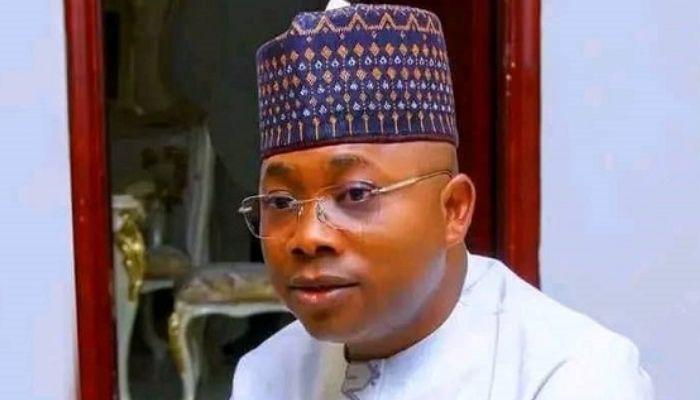The Kogi State Governor, Usman Ododo, and the All Progressives Congress will start presenting their evidence on April 15 at the governorship election tribunal in Abuja.
The Social Democratic Party and its candidate, Muritala Ajaka are contesting Ododo's victory in the November 11, 2023 governorship election.
Ododo won with 446,237 votes, beating Ajaka who got 259,052, and Dino Melaye of the PDP who received 46,362 votes.
The tribunal, chaired by Justice Ado Birnin-Kudu, set the date after the SDP and Ajaka completed their case.
The petitioners, who initially said they had 400 witnesses, only called 25.
The petition listed the Independent National Electoral Commission, Ododo, and APC as the first three respondents.
During the hearing, the respondents' lawyers opposed the move by Jibrin Okutepa (SAN) to have a digital forensic expert, Edidiong Udoh, testify.
They argued that the petitioners did not include the witness's name in their evidence, and the witness statement was not provided with the petition.
They also said the petitioners gave them the witness's report just 20 minutes before the hearing.
However, Okutepa claimed that the forensic expert was listed in the petition and his statement was provided earlier.
He admitted the report was given to the respondents shortly before the proceedings.
He requested a 30-minute break for the respondents to review the report before Udoh testified.
Before adopting his statement, Udoh asked to change a part of it, explaining that he used improper words.
He requested to change 'There was some very suspicious software' to 'there was no suspicious software used.'
However, Agabi, Iziyon, and Ukala disagreed with Udoh’s request.
Agabi said, “If this kind of amendment is allowed, then any kind of amendment could be allowed.”
The judge told the respondents to state their objections in their final written statements.
Udoh stated that he had 12 certificates supporting his qualifications while giving evidence.
When Okutepa tried to present the certificates as evidence, the respondents' lawyers objected.
They questioned the absence of original documents for the certificates.
Udoh explained that he forgot the original certificates in his office in Port Harcourt.
“The originals were mistakenly left in my office in Port Harcourt, but I have them,” Udoh explained.
Even though the tribunal rejected the photocopies, the lawyer for the petitioners begged, saying that the certificates were personal papers and should be allowed.
Justice Birnin-Kudu accepted the documents and advised the respondents' counsel to hold off on their objections until the final address.
During cross-examination, the witness was asked if he was the sole person who worked on the report, to which he responded that eight other experts worked on it with him.
He was reminded that he did not indicate the names of the experts in the report and their signatures were also not included.
Udoh explained that he put his name and signature on the report because he was the team leader.
Udoh stated, “Eight of us conducted the analysis. As digital forensic experts, our qualifications are identical.
“I signed the report as the team lead because I was in charge.”
The witness was also asked if he understood the meaning of the BVAS Machine and its contents.
He said the machines were supposed to contain information on accredited voters, registered voters, and other relevant details.
The counsel for the respondents asked if this information included Form EC8A, and he confirmed that it might be included.
The respondents' lawyer then inquired if all the snapshots of the BVAS Machine in his report contained Form EC8A.
Udoh stated that the snapshots only pertained to accredited voters and registered voters.
The INEC guideline outlines what BVAS should contain, and Form EC8A is one of the requirements.
When asked if he examined the ballot papers and if his findings on the ballot papers were included in his report, he replied no.
However, he confirmed that INEC provided him with the voters register but he could not recall the exact number given to him.



